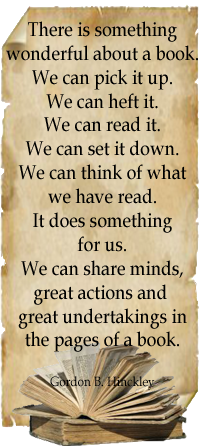Happiness is a Choice!
By Dr. Paula Fellingham
www.theWINonline.com
I remember the moment it happened. I was listening intently as the seminar presenter quoted Eleanor Roosevelt when she said, “No one can make me feel inferior without my consent.” Immediately the power of those words sunk deep into my heart and I thought, “That’s wonderful! That means no one can make me angry unless I allow it. And no one can offend me without my permission! That means…happiness is a choice!”
I decided right then and there to make conscious choices about how I respond to others and to my circumstances. I resolved, in that moment, to refuse to be offended by anyone.
Within the hour my resolve was tested. The lecture came to a close and my cell phone rang. It was my oldest son explaining that one of our subcontractors had just walked off the job, and our home construction would be delayed, again. My son reported that the contractor got a better job offer and just left.
As I hung up the phone I had a knot in my stomach as I reflected on what I’d just learned. Well, now, what was I going to do with my new understanding? I squared my shoulders and thought, “I refuse to be upset. This is a choice…how strong am I?” The gloom lifted almost immediately as I pulled out the yellow pages and thought, “It’s just a house – no one is hurt, I’m going to be positive – this too will pass.” I continued filling my mind with such thoughts until I connected with the enthusiastic voice of another contractor who assured me he’d be there first thing in the morning.
Later that same day….
My sister stopped by, very upset. Her daughter’s bridal shower had been poorly attended and she cried, “You have no idea how offended I am!” And I repeated Eleanor Roosevelt’s words in my mind.
Since that pivotal moment at the seminar, I’ve learned that choosing to be happy is absolutely liberating. When you truly understand that happiness is a choice, you no longer say, “You make me so angry!” because no one makes you angry. You don’t say, “That’s just the way I am – I always get depressed when it rains” because we choose our responses to life.
Dale Carnegie, author of How to Win Friends and Influence People, understood this principle. He remarked, “Happiness doesn’t depend on outer conditions, it depends on inner conditions. It isn’t where you are or what you have that makes you happy or unhappy, it’s what you think about it. For example, two people can be in the same place at the same time, and one is happy and the other is unhappy. Why? Because of a different mental attitude.”
So what can we do to raise our ‘happiness level’? Here are 10 ways to improve your mental attitude and enjoy life a little more:
Starting Today….
Decide to choose happiness. Abraham Lincoln remarked, “Folks are about as happy as they make up their minds to be.” One way to do this is to label and replace your negative thoughts. When a negative thought enters your mind think something like, “That was negative!” and replace it with a positive thought like, “I’m sure if I knew all the facts I’d understand him better.” Or, “That’s not like me to think negative thoughts; I’m usually a positive person.” Using good self-talk to improve your state of mind is highly effective.
Use upbeat words. “Words affect your emotions and attitudes,” says Maryann Troiani, Ph.D., author of Spontaneous Optimisim, explaining that pessimistic people tend to use “upsetting words,” while optimists use “upbeat words.” So when life gets challenging say, “I’m annoyed” rather than “I’m angry,” or “I’m a little concerned” instead of “I’m so worried!”
Exercise. A study done at Duke University Medical Center by James Blumenthal, Ph.D., concluded: “People who exercise regularly are generally happier than sedentary people.” Dr. Blumenthal further explained that aerobic exercise can be excellent for improving mood. We hear it again and again, don’t we? Exercise is good for us! So let’s take a walk, swim a few laps, go for a bike ride, or jog around the neighborhood!
Fill your cup. Whether it’s reading a good book, talking with a friend, painting, or playing the guitar, do something each day that you enjoy. You’ll be more pleasant to others when you take a little time out for yourself. The truth is: when our own cups are filled, we give love better from our overflow.
Get your dreams out of the box. “Having a dream, an interest, a reason to get up each day, as well as feeling you have a degree of control over your life, are the most critical components to a sense of well-being,” concluded Dr. Deon Dunn, Ph.D., cofounder of the Resiliency Institute of Personal Growth in Salt Lake City. And yet many people with dreams never do anything about them. Erma Bombeck wrote, “There are people who put their dreams in a little box and say, ‘Yes, I’ve got dreams, of course I’ve got dreams.’ Then they put the box away, and bring it out once in awhile to look in it, and yep, they’re still there. These are great dreams, but they never even get out of the box. It takes an uncommon amount of guts to put your dreams on the line, to hold them up and say, ‘How good or how bad am I?’ That’s where courage comes in.”
Nurture your relationships. “There are few better remedies for unhappiness than an intimate relationship with someone who cares about you,” says David Myers, Ph.D. Our families and friends can be significant sources of happiness, so spend the time and put forth the effort to keep your relationships healthy. Even if you have to push yourself to make a phone call at the end of a busy day, stay in touch with loved ones and friends who add joy to your life and boost your spirits.
Take risks. Learning new skills, traveling to foreign places, taking a class, or working on a hobby can do wonders for your emotional well-being. Whenever we expand our horizons and adventure into the unknown we’re taking a risk, but our happiness level is usually raised in the long-run. Sheryl Watham, mother of four in Southern California, began taking piano lessons at age 55. After only two years she became the organist for her church and achieved a life-long goal.
Be forward-focused. Instead of allowing yourself to be pulled backwards into the past, look for the solution in every challenge. Rather than blaming, accusing, and re-hashing the past, ask yourself, “What can I do to be part of the solution?” Jane Gillham, Ph.D., co-director of the Penn Resiliency Project at the University of Pennsylvania wrote, “Before you see a situation as hopelessly unresolvable, think of six or seven ways you could approach it. Then pick the best one.”
Be others-centered. It’s therapeutic to look through windows, seeing the needs of others, instead of looking through mirrors, seeing only your own needs. Psychologist Greta Palmer remarked, “Those only are happy who have their minds on some object other than their own happiness…on the happiness of others…on the improvement of mankind.”
Develop spirituality. Strong religious beliefs contribute to emotional well-being and happiness. Believing that God loves us and that there is a ‘master plan’ for this world provides assurance that there is a purpose for this life and the things we do to improve our lives have meaning. Then when obstacles threaten to overwhelm us we draw strength from our beliefs, as did Fanny Crosby. Although she lost her sight as a young girl, Fanny wrote more than eight thousand songs in her eighty-eight years of life. Fanny always believed her blindness was a gift from God that helped the words flow from her pen. Perhaps the first poem she ever wrote best expressed her special spirit:
Oh, what a happy soul I am,
Although I cannot see,
I am resolved that in this world
Contented I will be.
Yes, happiness is a choice. Indeed, we have the power to choose happiness or unhappiness with every thought that enters our mind. May we be blessed in our efforts to see each day as a wonderful opportunity to make choices that bring joy into our lives and the lives of others.
The Best Parts of Life that Help Me Feel Human
15 hours ago




No comments:
Post a Comment